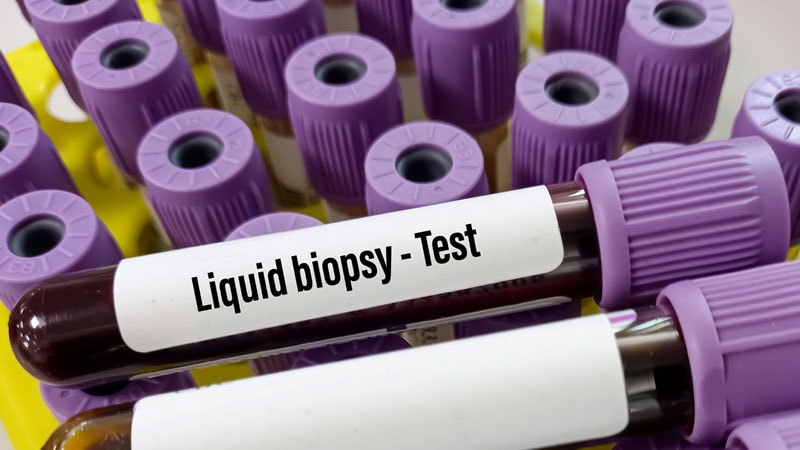Researchers at the University of Oxford have reported results of a new blood test designed to detect multiple types of cancer, including in early stages. The test, named TriOx, uses machine learning and advanced DNA analysis to identify cancer when it is most difficult to diagnose.
Liquid biopsy technology has become a focus of research in recent years as a minimally invasive alternative to existing diagnostic tests. Although liquid biopsies show promise for detecting multiple cancers, those currently available only examine one or two features of the cancer DNA, limiting their effectiveness. Furthermore, these tests face challenges due to high false positive rates in asymptomatic individuals.
DNA Analysis and Machine Learning
TriOx employs TET-assisted pyridine borane sequencing (TAPS) combined with machine learning to detect multiple key markers of circulating tumour DNA.
A diagnostic accuracy study, published in Nature Communications, evaluated TriOx using blood samples from symptomatic patients referred by GPs and asymptomatic people without cancer. Two-thirds of the participants were male, and 71% were aged 60 years or older. For the cases with confirmed cancer, the median age was 67.5 years.
The test distinguished between cancer and noncancer cases with a sensitivity of 94.9% and a specificity of 88.8%. It correctly identified eight of nine cancer-free controls as negative, and 56 of 59 confirmed cancer cases as positive.
Among patients diagnosed with cancer, 8.2% had stage 1 cancer, 32.8% had stage 2, 57.4% had stage 3, and 1.6% had stage 4. Nearly two-thirds of all participants had colorectal cancer.
Further Development Underway
The study authors said they had established proof-of-principle that deep whole genome sequencing is sensitive. They are now expanding the test to detect a broader range of cancers and validate it in larger patient groups.
In a press release, Anna Schuh, MD, PhD, professor of molecular diagnostics at the University of Oxford and lead researcher on the study, said TriOx “has the potential to improve survival rates for millions worldwide by enabling implementation of routine blood tests to catch cancer earlier, when it’s easier to treat”.
Dimitris Vavoulis, DPhil, from the Centre for Human Genetics at the University of Oxford, who co-led the research, commented: “Many cancers, such as pancreatic and ovarian, often go unnoticed until they’ve advanced, when treatment is more difficult and less effective. Current screening methods are limited to a few cancers and are often invasive, deterring many from regular checks.
He noted that although the technology is in early development, the goal is to create a simple blood draw test to screen for multiple cancers, offering a faster, more convenient option for patients and doctors.
Expert Reaction
David Crosby, head of prevention and early detection research at Cancer Research UK (CRUK), told Medscape News UK that multicancer early detection tests “represent a promising area of cancer research that could help clinicians diagnose cancers earlier, potentially helping more people survive cancer and live longer, better lives”. Although the results demonstrated the test’s ability to discriminate between a small number of known cancer patients and individuals without cancer, “this does not tell us whether the test would work for cancer screening in the real world”, he said.
Crosby called for larger-scale clinical trials and independent review of the data.
Lisa Wilde, director of research at Bowel Cancer UK, told Medscape News UK, “This is a promising study, but it is very early stage and is still at the point of testing a new technique on a small number of people and won’t be used in clinics soon. However, we are always keen to see new ways to detect bowel cancer in a minimally invasive way, so we will be interested to see how this test develops.”
The study was funded by Innovate UK and the NIHR Oxford Biomedical Research Centre. CRUK disclosed funding for some of the researchers involved with the study.
Peter Russell has been a journalist for 40 years covering international news, health, medicine, and national politics on radio, TV, and online. He is based in the UK.
Source link : https://www.medscape.com/s/viewarticle/blood-test-shows-promise-early-cancer-detection-2025a10000ld?src=rss
Author :
Publish date : 2025-01-10 13:38:53
Copyright for syndicated content belongs to the linked Source.
